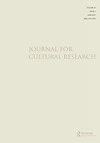The coronavirus pandemic: exploring expectant fathers’ experiences
IF 0.6
Q1 CULTURAL STUDIES
引用次数: 7
Abstract
ABSTRACT The Coronavirus pandemic raises significant concerns about pervasive social inequities and disparate gender relations, particularly between mothers/fathers. Indeed, the pandemic engendered a general retreat into traditional parenting roles across myriad, everyday, institutional, spaces, including workplaces, homes, and welfare/healthcare services. These effects have been especially marked for couples expecting a child. Visitor-restriction policies, implemented to curb viral-spread within healthcare settings, effectively ‘barred’ many expectant fathers in the UK (and elsewhere) from attending antenatal appointments, and even the birth of their child; milestone moments widely regarded as significant socio-cultural ‘rites-of-passage’ in fathers’ transition to parenthood. Many pregnant women had to face these moments alone, sparking campaigns including #ButNotMaternity. This paper critically examines how such institutional responses exhibit a complex ‘welfare trade-off’ effectively (re)positioning fathers as spectators, rather than participants, in pregnancy/parenthood and risk embodying a potential U-turn to recent decades’ emphasis on involved, equitable fatherhood. Drawing upon the accounts of expectant mothers/fathers in the UK reported in the popular press since March 2020 and the #ButNotMaternity campaign, it employs thematic social-media analysis to explore the emotional impacts of visitor-restrictions and the gendered, emotional governance of parenting amidst the pandemic through the exclusion of particular (fathers’) bodies within maternity care spaces.冠状病毒大流行:探索准爸爸的经历
摘要冠状病毒大流行引发了人们对普遍存在的社会不平等和不同性别关系的严重担忧,尤其是母亲/父亲之间的关系。事实上,疫情导致人们在无数日常、机构、空间,包括工作场所、家庭和福利/医疗服务中,普遍回归传统的育儿角色。这些影响对于怀孩子的夫妇来说尤其明显。为遏制病毒在医疗机构内传播而实施的访客限制政策,有效地“禁止”了英国(和其他地方)的许多准爸爸参加产前预约,甚至禁止他们的孩子出生;里程碑式的时刻被广泛认为是父亲向父母转变过程中重要的社会文化“成人仪式”。许多孕妇不得不独自面对这些时刻,引发了包括#ButNotMaterity在内的运动。本文批判性地研究了这种制度反应如何表现出复杂的“福利权衡”,有效地(重新)将父亲定位为怀孕/为人父母的旁观者,而不是参与者,以及风险体现了近几十年来对参与、公平的父亲身份的潜在转变。根据自2020年3月以来大众媒体报道的英国准妈妈/准爸爸的描述和#ButNotMaterity运动,它采用了主题社交媒体分析来探讨访客限制和性别、,通过将特定(父亲的)身体排除在产科护理空间之外,在疫情期间对养育子女的情感管理。
本文章由计算机程序翻译,如有差异,请以英文原文为准。
求助全文
约1分钟内获得全文
求助全文
来源期刊

Journal for Cultural Research
CULTURAL STUDIES-
CiteScore
1.40
自引率
0.00%
发文量
23
期刊介绍:
JouJournal for Cultural Research is an international journal, based in Lancaster University"s Institute for Cultural Research. It is interested in essays concerned with the conjuncture between culture and the many domains and practices in relation to which it is usually defined, including, for example, media, politics, technology, economics, society, art and the sacred. Culture is no longer, if it ever was, singular. It denotes a shifting multiplicity of signifying practices and value systems that provide a potentially infinite resource of academic critique, investigation and ethnographic or market research into cultural difference, cultural autonomy, cultural emancipation and the cultural aspects of power.
 求助内容:
求助内容: 应助结果提醒方式:
应助结果提醒方式:


